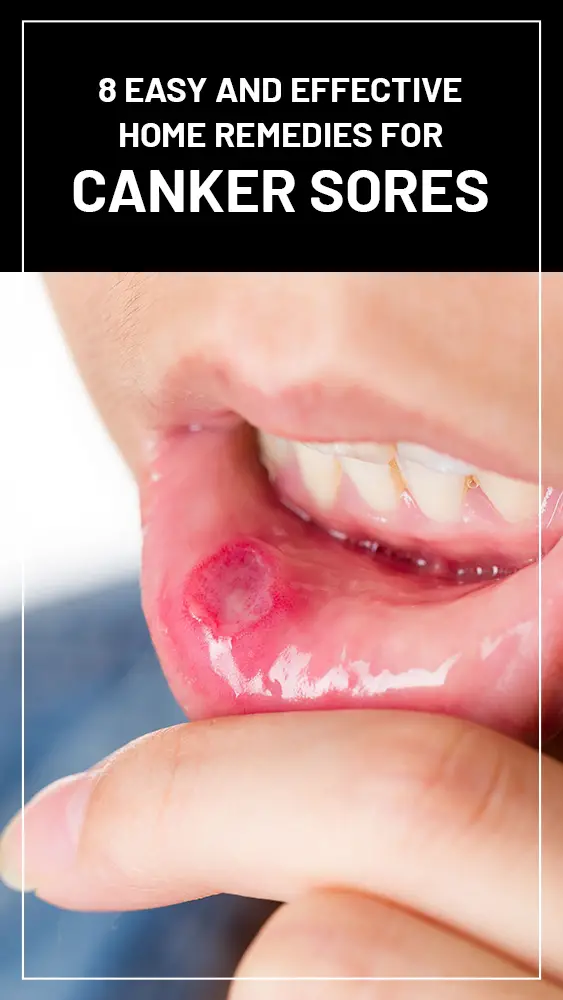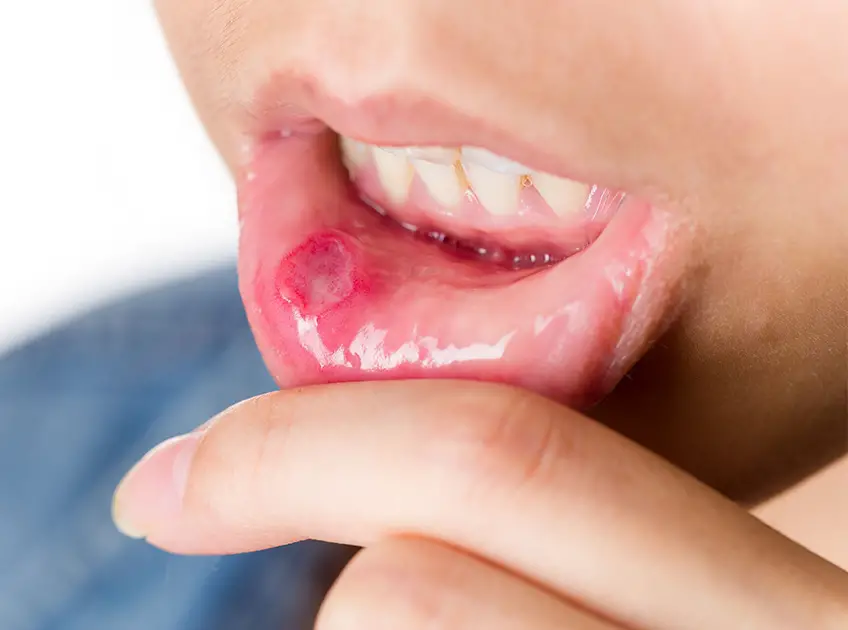
Important: This article is for informational purposes only. Please read our full disclaimer for more details.
Do you have inflamed and painful sores covering the insides of your lips and/or cheeks? Are you wondering what these sudden formations are? Well, chances are that you have developed canker sores. Canker sores are outright painful. Although they can usually heal on their own, you might want to get rid of them as soon as possible. What causes such sores? How do you speed up the healing of these stubborn sores? This post covers all it all along with a lot more information.
Cankers sores are painful mouth ulcers or sores. They are also referred to as aphthous ulcers (or aphthous stomatitis) and are the most common type of mouth ulcers. You may also notice them inside the lips or cheeks. Canker sores are usually white or yellow and often surrounded by red, inflamed tissues. While canker sores are not contagious, they may take up to three weeks to heal completely. Serious cases of such sores may take as long as six weeks to heal.
What causes canker sores in mouth?
While the exact cause of canker sores is unknown, here are some factors that can increase your risk of developing them.
- A viral infection, especially from Herpesvirus
- Increased stress
- Hormonal imbalances
- Allergies to certain foods
- Acidic foods like citrus fruits
- A deficiency in vitamin B12, zinc, folic acid, or iron
- Medical conditions like Celiac disease or Crohn’s disease
- Hormonal changes that occur during your menstrual cycle
- An injury to the mouth due to braces, a sharp tooth, or something else.
Signs And Symptoms of Canker Sores
The following are some of the most common signs and symptoms associated with canker sores.
- White or yellow ulcers
- Oval-shaped ulcers
- Red and painful areas inside the mouth
- A tingling sensation inside the mouth
- In a few cases, the following symptoms might also be present:
- Swelling of your lymph nodes
- Fever
- Fatigue and weakness
What are the three types of canker sores?
Canker sores can be classified into 3 types.
1. Minor Canker Sores: These are the most common type of canker sores. They are usually small and oval-shaped with a red ridge. Such sores heal without scarring in one to two weeks. They can occur in kids aged 10 to adults aged 20.
2. Major Canker Sores: These are less common and often larger and deeper than the minor sores. They are usually round and defined, but they may sometimes have irregular edges when the sores are very large. Such sores are extremely painful and may take up to six weeks to heal. Major canker sores can cause extensive scarring.
3. Herpetiform Canker Sores: They are uncommon and are known to develop later in life. Such sores are not caused by the herpes virus and are usually pinpointed. They occur in clusters of 10-100 sores and can merge into one big cluster eventually.
Home Remedies and Treatments for Canker Sores
A few natural ingredients can also help in alleviating the symptoms of canker sores.
1. Baking Soda

The antibacterial nature of baking soda can help fight oral microbes. Its anti-inflammatory properties can help reduce the swelling and pain in the affected area.
You’ll Need:
- 1 teaspoon of baking soda
- ½-1 glass of warm water
Process:
- Mix a teaspoon of baking soda in a glass of warm water.
- Use this solution to rinse your mouth.
- You can do this 2-3 times daily, preferably after every meal.
[ Recommended: How Does Salt Help Heal Canker Sores ]
2. Tea Tree oil
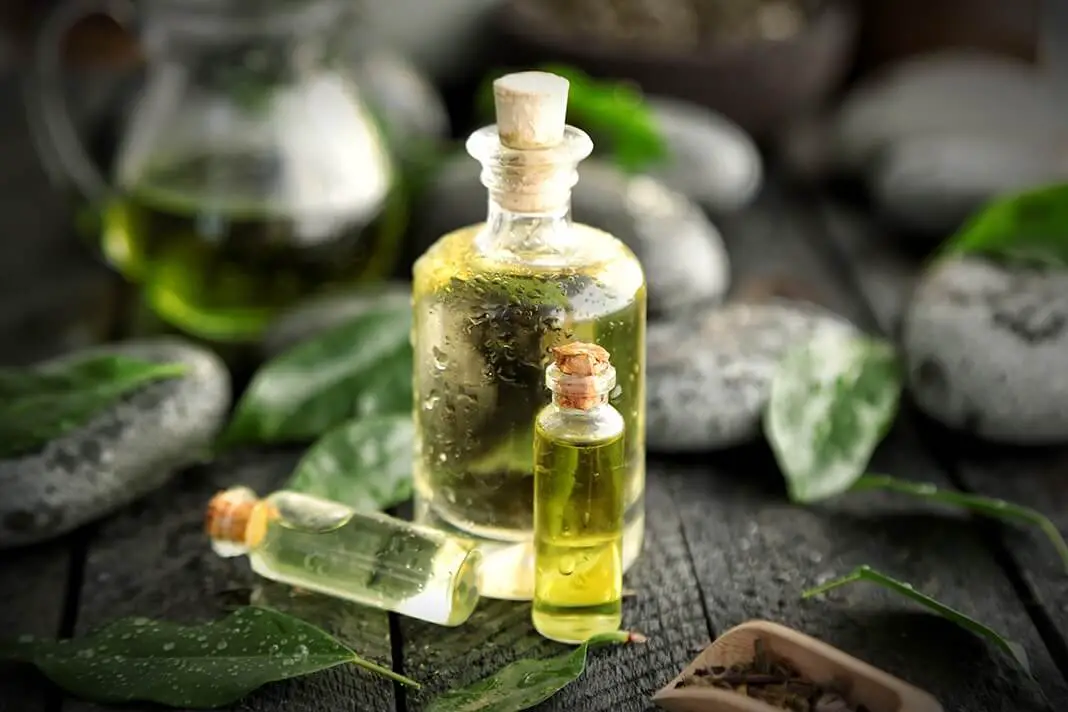
The antimicrobial properties of tea tree essential oil can fight viral infections that might be triggering canker sores. Its anti-inflammatory properties can soothe inflammation and pain.
You’ll Need:
- 1-2 drops of tea tree essential oil
- 1 cup of warm water
Process:
- Add one to two drops of tea tree essential oil to a cup of warm water.
- Mix well and use this solution to rinse your mouth.
- You can do this 1-2 times daily.
3. Chamomile Tea

The powerful anti-inflammatory properties of chamomile tea can help reduce the symptoms of canker sores and also speed up their recovery.
You’ll Need:
- 1 teaspoon of chamomile tea
- 1 cup of water
- Honey (optional)
Process:
- Add a teaspoon of chamomile tea to a cup of water.
- Bring it to a boil in a saucepan.
- Simmer for a few minutes and strain.
- Once the tea cools down a little, you can also add some honey to it.
- Drink the warm chamomile tea.
- You can drink this twice daily.
[ Recommended: How to Use Hydrogen Peroxide for Canker Sores ]
4 . Honey
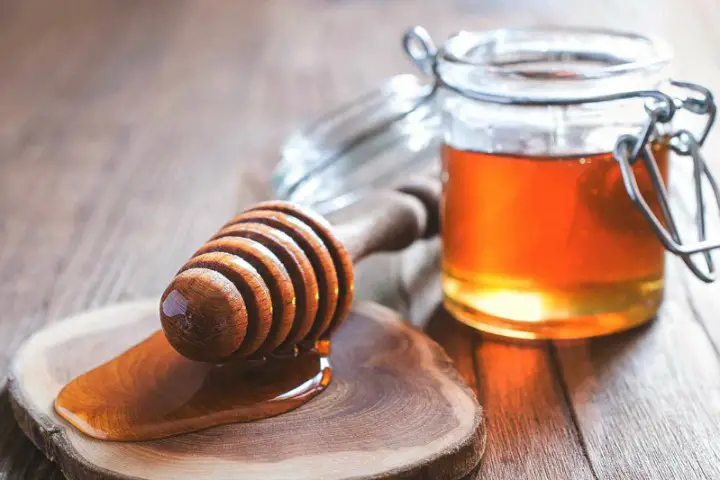
Honey has antimicrobial and anti-inflammatory properties. While the antimicrobial properties can help fight infections that trigger the canker sore, the anti-inflammatory properties help in alleviating inflammation, pain, and other symptoms.
You’ll Need:
- Organic honey
- Cotton swab
Process:
- Take a little honey onto a cotton swab.
- Apply it to the affected area.
- Leave it on for 15-20 minutes and rinse it off with water.
- You can do this 2-3 times daily.
5 . Aloe Vera
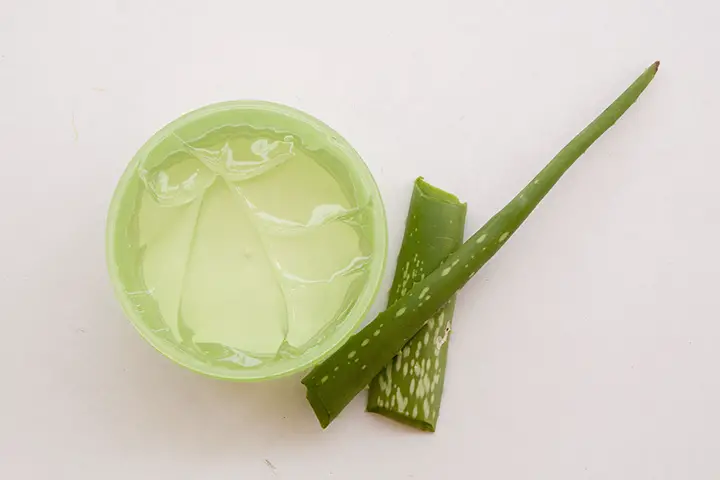
The soothing, anti-inflammatory nature of aloe vera can do wonders in reducing pain, inflammation, and swelling associated with canker sores.
You’ll Need:
- Aloe vera gel (as required)
- Cotton swabs
Process:
- Apply freshly extracted aloe gel to the canker sore with a cotton swab.
- Leave it on for 15-20 minutes before rinsing it off.
- You can do this 2-3 times daily.
6. Turmeric
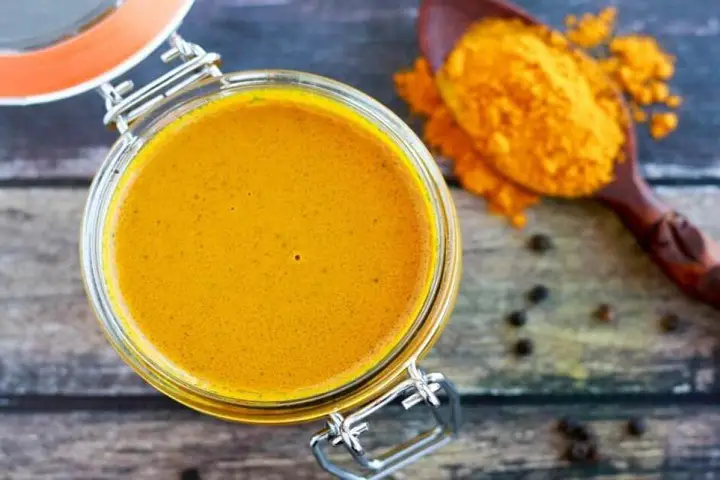
The active component of turmeric is curcumin. The healing activities of curcumin can accelerate the healing of canker sores.
You’ll Need:
- ½ teaspoon of turmeric powder
- A few drops of water
- Cotton swabs
Process:
- Add a few drops of water to half a teaspoon of turmeric powder.
- Mix well to form a thick paste.
- Using a cotton swab, apply the turmeric paste to the canker sore.
- Leave it on for 15-20 minutes before rinsing it off.
- You can do this 1-2 times daily.
7. Epsom Salt
One of the main constituents of Epsom salt is magnesium, which has anti-inflammatory properties. Hence, Epsom salt can help alleviate the symptoms of canker sores.
You’ll Need:
- ¼ teaspoon of Epsom salt
- 1 cup of warm water
Process:
- Add one-fourth teaspoon of Epsom salt to a cup of warm water.
- Mix well and rinse your mouth with the solution for a few seconds.
- Don’t forget to rinse your mouth with plain water after this.
- You can do this 2-3 times daily.
Oil Pulling
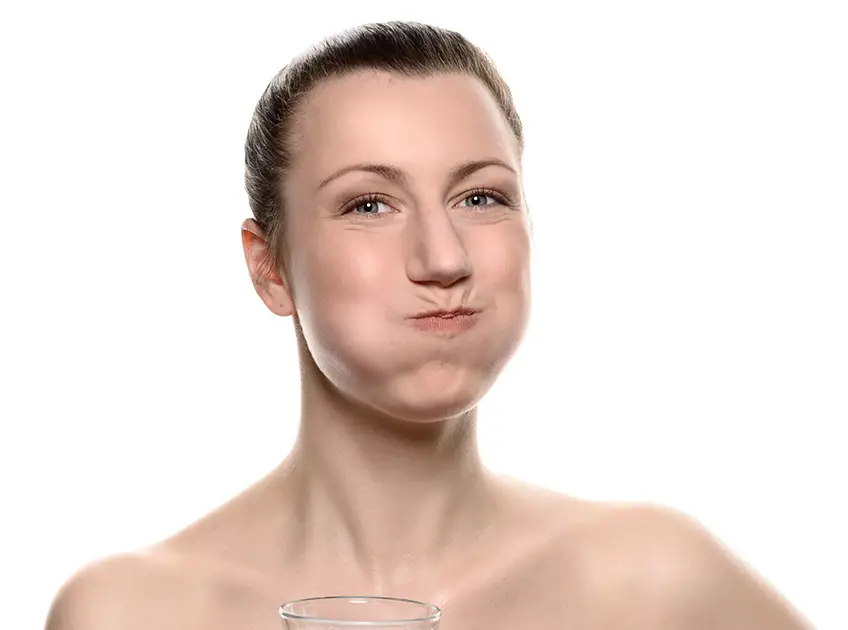
Among the many potential oral benefits of oil pulling, one is its ability to reduce the symptoms of canker sores. This may have to do with the anti-inflammatory properties exhibited by the oils used.
You’ll Need:
- 1 tablespoon of coconut or sesame oil
Process:
- Swish a tablespoon of coconut or sesame oil in your mouth for 10-15 minutes.
- Spit the oil out and go about your normal oral routine like brushing and rinsing.
- You can do this once every morning before brushing your teeth.
By following the tips and remedies can help in speeding up the recovery of those painful canker sores. You can also try out any over-the-counter topical products to assist in the healing of canker sores. If there is an outbreak of sores or if you suddenly develop large sores accompanied by fever, diarrhea, rash, or headache, it is best to consult a doctor. You must also consult a doctor if the canker sores are not showing any signs of healing even after several weeks.
Recommended Topics:
- How to Use Turmeric to Reduce Inflammation?
- 5 Simple Ways to Get Rid of Roof of Mouth Sore at Home
- 8 Easy Exеrсіѕеѕ tо Strengthen Your Cоrе
- 6 Best Exercises to Prevent Varicose Veins
- Foam Roller Exercises – 9 Best Moves and Its Benefits
- Pelvic Floor Exercises – 6 Best Moves to Strengthen Your Pelvic Floor
